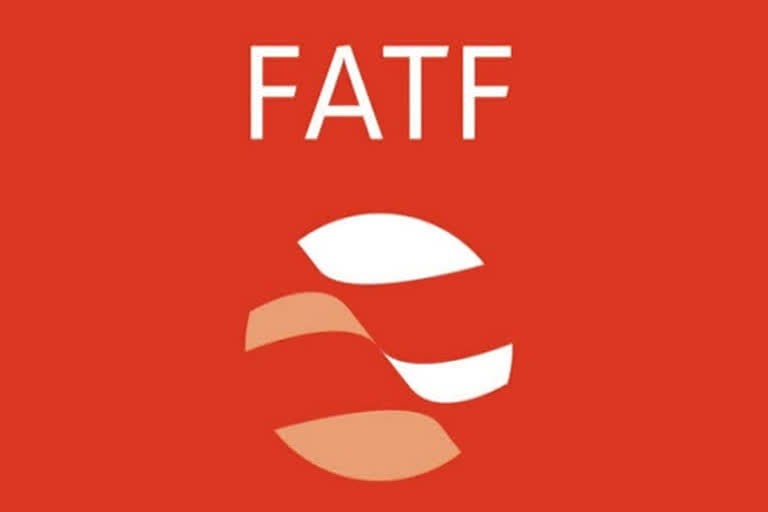New Delhi:Amid reports that Pakistan is unlikely to exit the FATF grey list, analyst views that it is expected that FATF will blacklist Pakistan at the global level and declare Pakistan as a ‘terror state’ as it has been unable to comply with 27 points in the global watchdog’s action plan.
The Financial Action Task Force (FATF) has begun its three-day virtual plenary meeting on Wednesday and all eyes are on its final call on Pakistan’s continuation on its grey list. The global money laundering and terrorist financing watchdog will undertake a thorough review of Islamabad’s performance in fulfilling the global commitments and standards in the fight against money laundering and terror financing.
In conversation with ETV Bharat, Suvro Kamal Dutta, a Think Tank expert on Pakistan said, “FATF needs to take a final call against Pakistan during the plenary meeting and blacklist Pakistan. If it does not happen in the FATF meeting, then it is quite tacit that Pakistan will continue to remain in the ‘grey list’ and probably, in such scenario, FATF might give more time to Pakistan to fulfil the conditions, so that it can come out of the grey list.
"But as usual Pakistan will be evasive and will try to hoodwink the global community once again by giving moral lip service commitment in the FATF preliminary session”, he added.
He underlines that it is the time that instead of reconsidering Pakistan to be out from the ‘grey list’, FATF should take a final call by clarifying Pakistan that since its government has not fulfilled the commitments about terrorism and for exporting terrorism in the global level, therefore, it should be moved ahead from the grey list to a blacklist with a warning that if the nation does not fulfil the conditions as imposed by the global watchdog in another two years term, then it will permanently stay in the blacklist.
Read: Pakistan unlikely to exit FATF grey list: Report
The global watchdog in a statement on Wednesday informed that during the next three days of the plenary meeting, delegates will discuss a range of issues, including the impact of the COVID-19 pandemic on countries ability to detect, prevent and investigate money laundering and terrorist financing.
Delegates are also expected to discuss the progress made by some jurisdictions identified as presenting a risk to the financial system. The FATF Plenary will also discuss and finalize updates to the FATF Standards that will strengthen measures to prevent the financing of proliferation of weapons of mass destruction.
Dutta further highlighted that the FATF had given Pakistan several chances for completely checking terror financing but it has failed in some of the key tasks including action against all UN-designated terrorists like Jaish-e-Mohammed (JeM) chief Masood Azhar, Lashkar-e-Taiba (LeT) founder Hafiz Saeed. Pakistan has failed to stop terror activities including terror funding, Hawala transaction etc”.
“In my understanding, there are certain countries including China and Turkey is playing a hand in the globe with Pakistan and is trying to save Pakistan from the FATF blacklist. China and Turkey are trying all means to bail out Pakistan. China is making all possible efforts to back Pakistan not only to evade the blacklist but also to come out of the Grey List. It is high time that the global community should realize the nexus between China and Pakistan”, he further points out.
According to reports, Pakistan was placed on the Grey List by the FATF in June 2018 for its failure to curb the funnelling of funds to terror groups like LeT and JeM and was given a plan of action to complete by October 2019.
Read:'Pakistan's failure to comply with FATF demands would be detrimental'
The FATF plenary had then noted that Pakistan addressed only five out of the 27 tasks given to it in controlling funding to terror groups and strongly urged Pakistan to complete its full action plan by February 2020. In February, the FATF gave Pakistan, which missed 13 targets, four months to complete its 27-point action plan.
But in June, due to the COVID-19 pandemic, the FATF decided to postpone the evaluation and to keep Pakistan on the grey list because anyway Islamabad failed to check the flow of money to terror groups like Lashkar-e-Taiba (LeT) and Jaish-e-Mohammed (JeM).
It is to be noted that the outcome of the ongoing FATF plenary meet will be declared on 23 October, after the meeting concludes.
